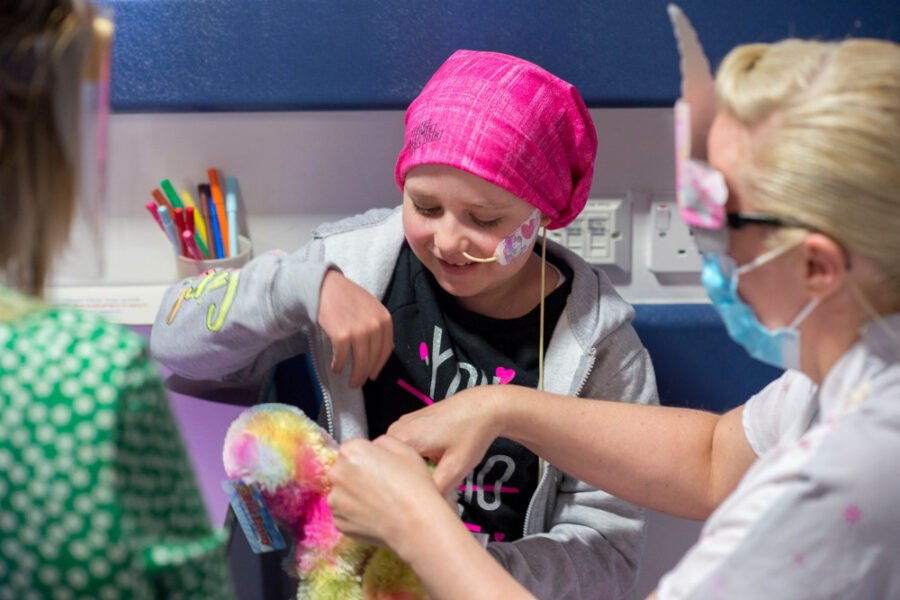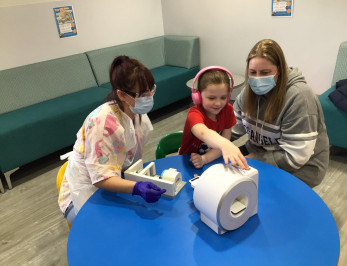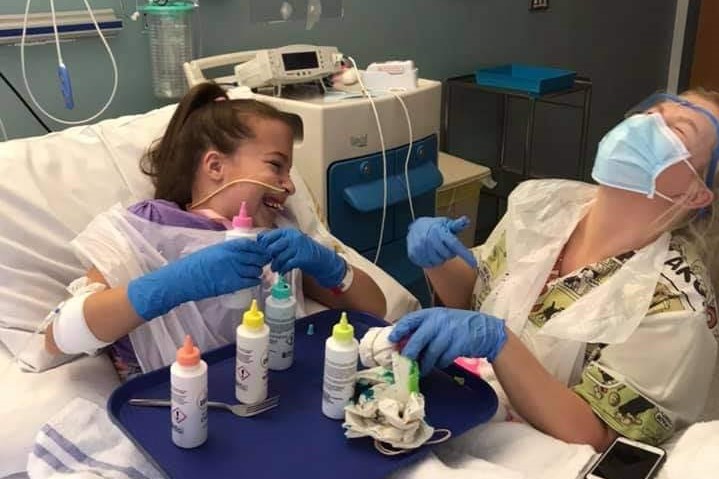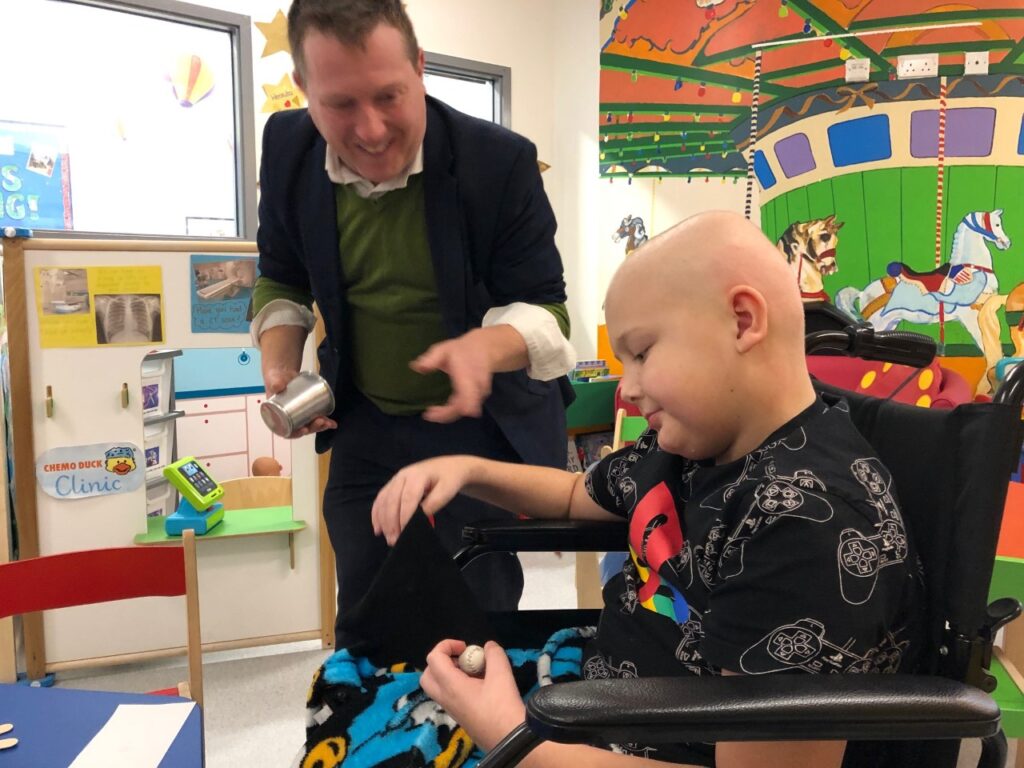
Welcome to the Play Service
Our Vision:
“To be a play service that will provide therapeutic, specialised and developmental work, with areas of outstanding preparation and distraction play for all children and young people at Leeds Children’s Hospital. Taking into consideration their culture, gender and all round individual needs.”
Why Play in Hospital?
- Play is familiar and reassuring to children and young people, it can be used to help them understand what’s happening in an unfamiliar environment like hospital
- Positive, trusting relationships can be developed through play which helps children and young people feel safe, supported and in control
- Research has shown that play can help to reduce a child’s feelings of pain
- Being able to play in hospital gives children and young people a sense of normality and makes their hospital experience a more positive one
- Play can help to minimise trauma and speed up recovery times
- The experience of working with the Play Team can help the whole family to feel supported
As well as encouraging children and young people to access play equipment and providing play activities to support development, the Play Team also use playful methods for preparation, distraction and post-procedural play.

Preparation – can involve using photographs, videos, role play, medical equipment or books to help patients understand what a procedure involves, allowing them to ask questions and relieve anxieties.

Distraction – various techniques can be used to help take a patient’s attention away from treatments and procedures while they are happening.

Post-procedural play – provides opportunity for patients to express what they feel a procedure or treatment was like using a variety of methods, which can help future coping strategies.
LCHTV
Here at Leeds Children’s Hospital we are very proud to host our own LCHTV website where patients and parents can find lots of video resources designed to help with your hospital visit. Videos include a look around some of our wards as well as preparations for tests and procedures. Some of the films have been made by children, young people and their families.
Feel free to have a look before you come into hospital as it’s a great tool for preparation and a to meet some of our fantastic team!
Meet the team
Services We Provide
What we do
Most of our ward and outpatient clinics have a designated playroom and/or teenage area, which are positive, friendly environments where a lot of play opportunities occur. Although many play spaces are currently closed due to the pandemic, we hope to re-open them as soon as we can.
As a Play Team we are also experienced in providing play opportunities in different spaces, such as at the bedside, in a side room or other areas of the hospital. This means that everyone has the chance to play, create and explore during their time in hospital, which helps to minimise trauma and aids recovery times.
Services and facilities
We recognise that supporting children and young people’s social and emotional well-being while they are in hospital is massively important. Some of the things we do to help this, as well as some of the facilities we can provide, include:
- The Place2Be – a dedicated teenage space, run by the LTHT Youth Work Service and based in Clarendon Wing
- Access to a sensory room
- A weekly youth club
- Youth Forum – a patient group who discuss their views and ideas for improving the hospital experience for children and young people
- Weekly Scouts and Guides sessions
- Specialist hospital entertainers including Theodora Giggle Doctors, POD entertainers, Brightside Music and Pet Therapy Dogs
- Summer fairs
- Santa’s Grotto at Christmas
- Leeds Children’s Hospital Prom
- Young Person’s Conference
- The Learning Zone – dedicated school rooms run by our onsite teaching service
Extra support
The Play team are very proud to work alongside the Trust’s Learning Disability and Autism Team, providing advice, support and reasonable adjustments to patients and their families with additional needs during their hospital journey. If your child has a learning disability and/or autism, make sure you bring their Hospital Passport in with them or ask for one to complete when you arrive.